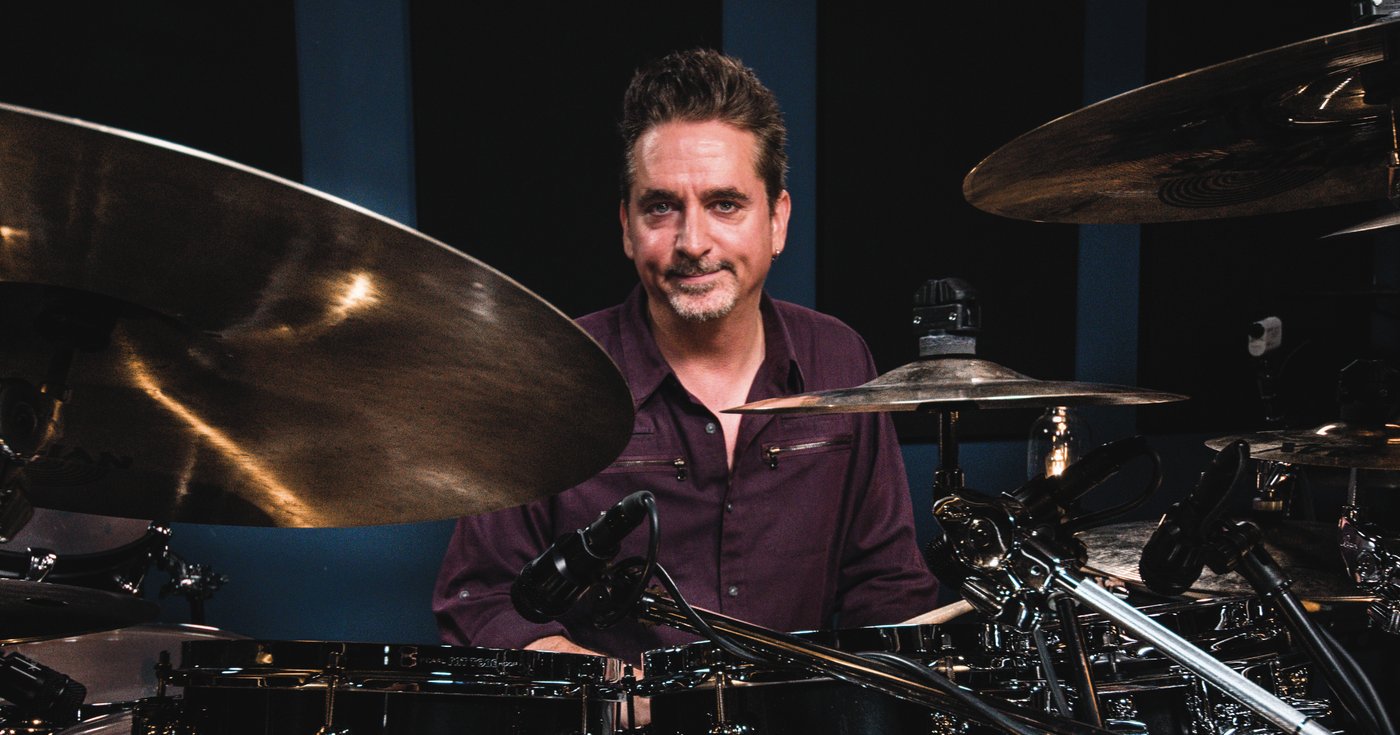
I had always groomed myself to be a session musician, and that’s what I thought I wanted to be.
In the early ‘90s, I was very fortunate to work with a lot of amazing musicians in Chicago. At that time, a large chunk of sessions were jingles: commercials for television and radio. A few active session players stuck out their necks for me and started recommending me to various producers when they couldn’t get their regular guys.
That’s when Styx came into my life.
It was 1995, and they had decided to re-record the song “Lady” for their Greatest Hits album. Unbeknownst to me, Styx’s original drummer, John Panozzo, was in ill health. Keith Marks, who ran all the cartage for recording sessions in Chicago, had worked with the band in the past and he recommended me for the session.
Now this was a band I’d seen three times as a kid, whose songs I covered growing up. In 8th grade, my buddy Alan and I wanted to see Styx, but neither of us had a driver’s license. My mom liked the band too, so I asked if she’d drive us down from the suburbs in order to find three scalped tickets and go together. She said yes. But when we got to the venue, no one had three tickets. They seemed to only come in pairs.
15 minutes before showtime, I looked at my mom and said, “Mom, is it okay if Alan and I go see the show, and you come back to pick us up?”
It hurt for me to say that. But she said yes, drove away, and Alan and I went to see Styx without her. I felt so guilty at the time.
Needless to say, being called in to record with this band was quite a thrill. But I went in as a professional, and was in and out of the studio in an hour.
The following year, they called me again to record a new original that was going to be on Greatest Hits Part 2. This time, there seemed to be much more interest in getting to know me. I could sense they were feeling me out as a human being, to see if I was an odd bird or a looney, or whatever. They asked me where I grew up. At that exact moment, I knew something was going on.
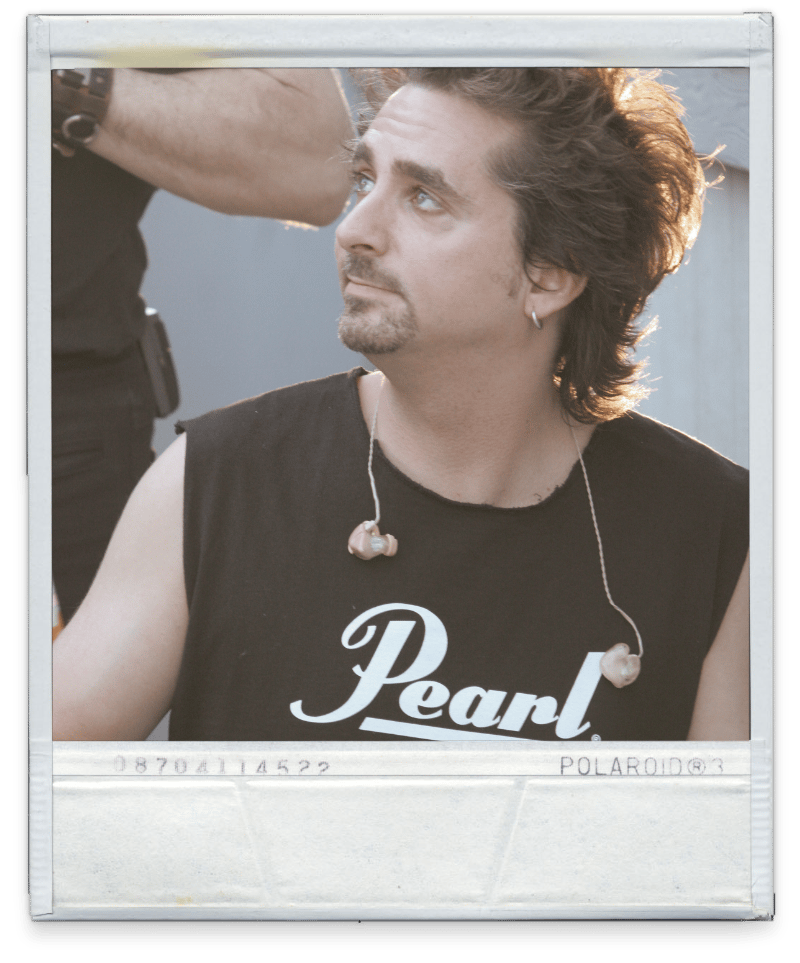
You have to spend 22 hours of the day with your bandmates offstage. Everyone in the band was very quick-witted, very intelligent. And I had to be able to socially hang with those guys if they were going to spend more time with me.
The next day, James Young called to offer me the summer tour…if I wanted it. That offer came with the caveat that if John Panozzo gets better, the gig is his, of course. I wholeheartedly agreed.
I’d never done a big scale rock tour at the time, much less with a band whose records I had growing up. I was 26 years old. I thought, you know, my recording session dreams have come true to some extent.
I said yes, and we were off to the races.
–
We rehearsed for about a month before launching the tour. One of the shows was a preview for family and friends. Of course, I invited my mom. After the show, I went up to her and said, jokingly, “Okay, are we cool now? Are we square? We good?”
She had no idea what I was talking about. She’d forgotten all about that show she’d driven me to in 8th grade. Eventually, she would be able to say she’s seen Styx a thousand times – so I think that debt has been repaid.
At this point, joining Styx on tour was a bit intimidating. I was the only non-original guy, they were all 15-20 years my senior, and I was replacing the bass player (Chuck)’s twin brother on drums.
People had asked me if it was a daunting situation. It wasn’t, musically – it was in my musical DNA, so to speak. But it was daunting to replace a guy who was sort of the Keith Moon of the band. John was the funnyman, the quick-witted crazy one. Everyone I ever spoke to said he was the funniest guy they’d ever met. So it was intimidating to take the place of such a large personality.
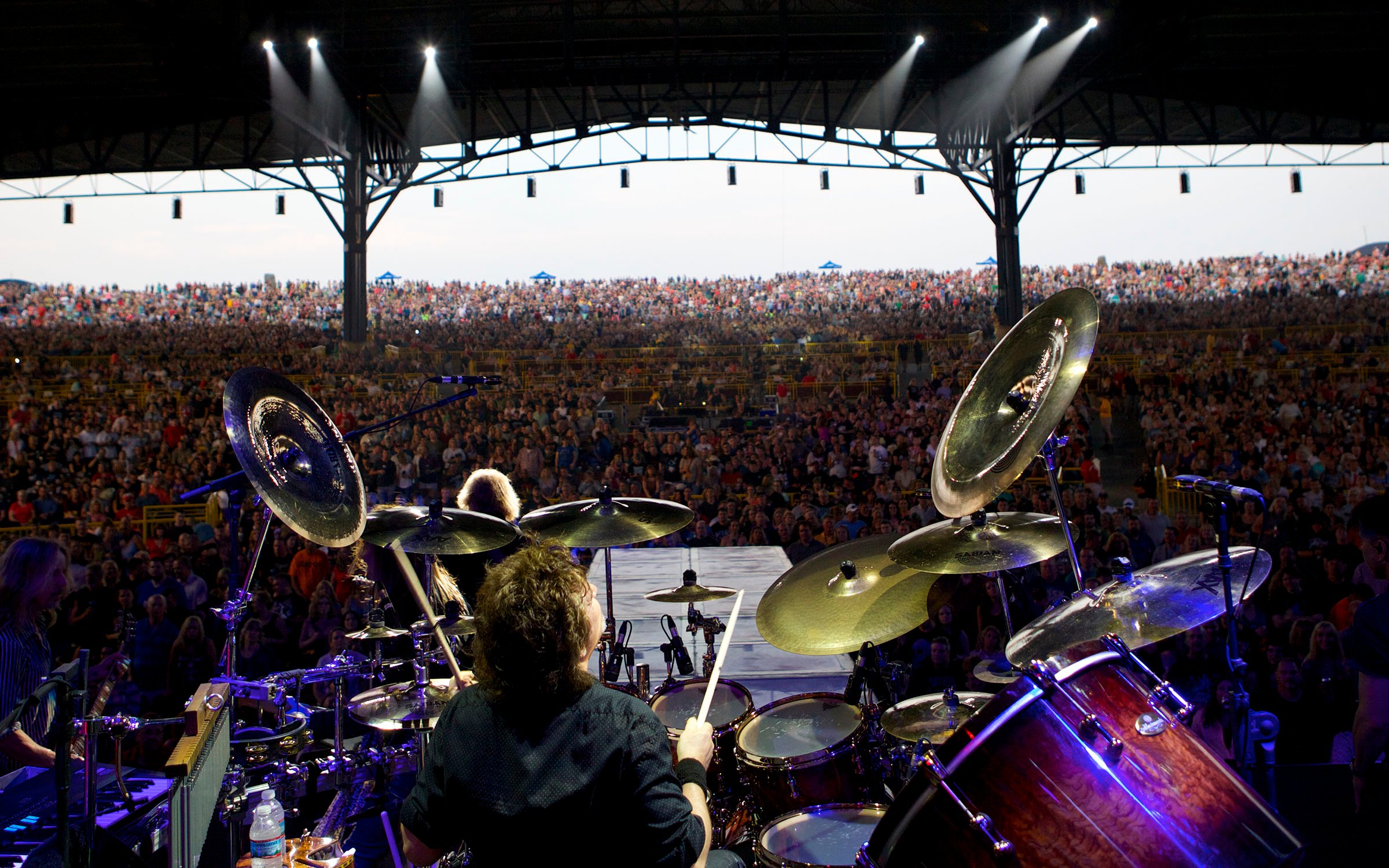
It was July of 1996, and we were in the New York City area for a week of television appearances and live shows. I got a phone call one morning from the tour manager.
He said that John Panozzo died last night.
They were all meeting in Chuck’s room. Of course, Chuck was stunned and numb. We were all there and I was quiet, letting them talk about what they were going to do. Do we fly for the services? Do we cancel shows? What do we do here?
That night, I went out with one of my best friends who happened to be in town. We walked for miles and miles through Manhattan together, talking about the whole experience and what had just happened as we hopped from one restaurant or bar to another. And when the night was over, I said goodbye to my friend and walked back to the swanky Upper East Side hotel.
As I entered the marble foyer, I could hear James Young’s laugh come out of the bar. I saw them all sitting there in a circle.
This was a moment I’ll never forget.
I stood there, looking at the bar to the right and the elevator to the left. I thought, what should I do here? Should I go into the bar? Will it be uncomfortable? Will it be a reminder that their longtime bandmate and brother just died? Will I not be welcome? Or do I go to the elevator and just sneak off to my room, easy, no harm done? What do I do here?
And I vividly remember standing still, contemplating: do I make a right or a left?
Do I make a right or a left?
Well, I finally decided to make a right and head into the bar. As I slowly approached the group, metaphorical hat in hand, I waited for their reaction to my being there. When they saw me, they immediately said “Todd! Come join us.”
Someone pulled up a chair. I sat down with them. And I listened to them regale, for the next hour or two, stories about John as they laughed, cried, and laughed some more. I think that was the moment they really accepted me.
I had the same feeling with them over the next two months.
–
The tour ended in Chicago. As I said goodbye to everyone, I thought I’d never see any of these people again. I figured it was a one time thing. It was unclear if the band was ever going to do anything in the future. It certainly would’ve been out of the ordinary for a session guy like myself to be called back. Maybe they’d want to try out someone else in the future. Who knows.
I really never thought I’d see them again.
Lo and behold, I got a call next spring. “Hey. We’re going to go out again next summer.”
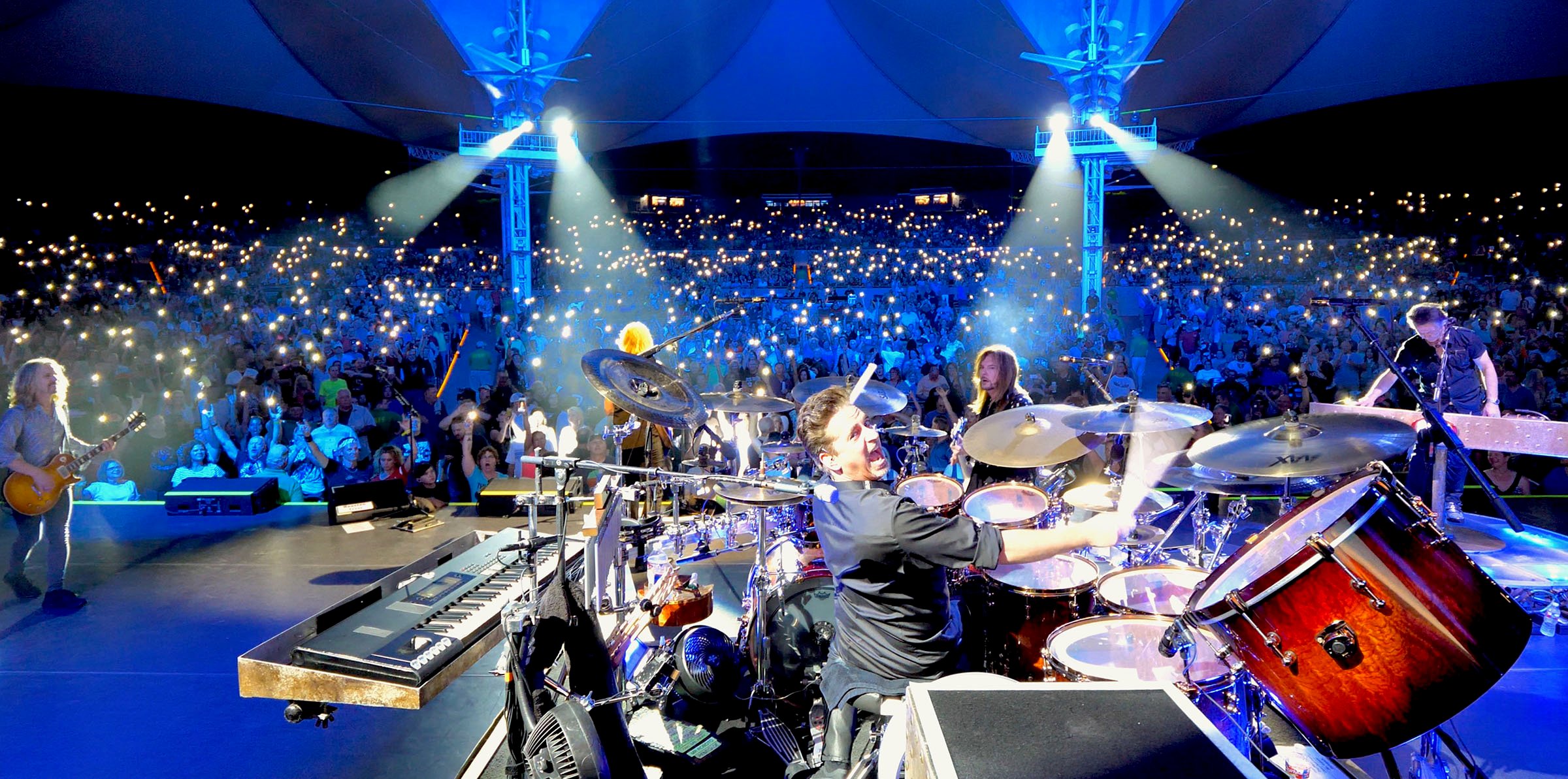
Styx has been such a large part of the last 23 years of my life. It’s astonishing how much has happened. I’ve managed to maintain a career outside of the band as well, but to have this be the ‘main course’ through my calendar year for over two decades – to be in a band that plays and sings as well as they do, who cares so much and never phones it in, who leaves it all on the stage every night – I’m so proud of that.
To this day, people still ask me how I got the gig with Styx, and what the audition was like. I say “well, there never was an audition.” I got called to do two recording sessions. This all happened because I’d put myself in the pathway of opportunity by playing every gig I could in Chicago. This was the result of every gig I ever did.
This was the result of every gig I ever did.
I didn’t know someone’s cousin. They didn’t audition 50 drummers and I happened to win the lottery. All the work I did, from the time I first put drumsticks in my hands as a two-year-old to taking every session, playing every dive bar, every weird thing on the South side, and rehearsing in a barber shop led me to this opportunity. It was up to me to lose it.
If you’re smart, you should learn things as you go. As you play with different musicians, it’s good to be humble and ask someone who is older and more experienced: “What can I do to make this gig better for you?” If you try to make it great for everyone – not just great for you – other musicians are going to pick up on it and appreciate it.
Any gig is yours to lose. Or you can just relax and do it. I always say there’s nothing to be nervous about when you’re playing the drums. At some point, you saw your next door neighbor’s drum kit, or a live band, and it made you fall in love with the instrument. You’ve got to hang on to that feeling. The audience is on your side; they want it to be good.
If you’re auditioning for a band, you don’t have to be nervous. They want you to be the guy. A lot of people screw themselves up mentally. Just prepare and realize that the game is just to play as well as you know you can, and play as well as you hope to. Relax mentally, relax physically – your grip, arms, posture – because that’s the only way that you can be a conduit to your authentic self on this instrument.
And when you are your authentic self, you can align yourself with the magic that is inside the music.

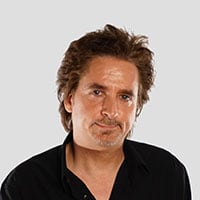
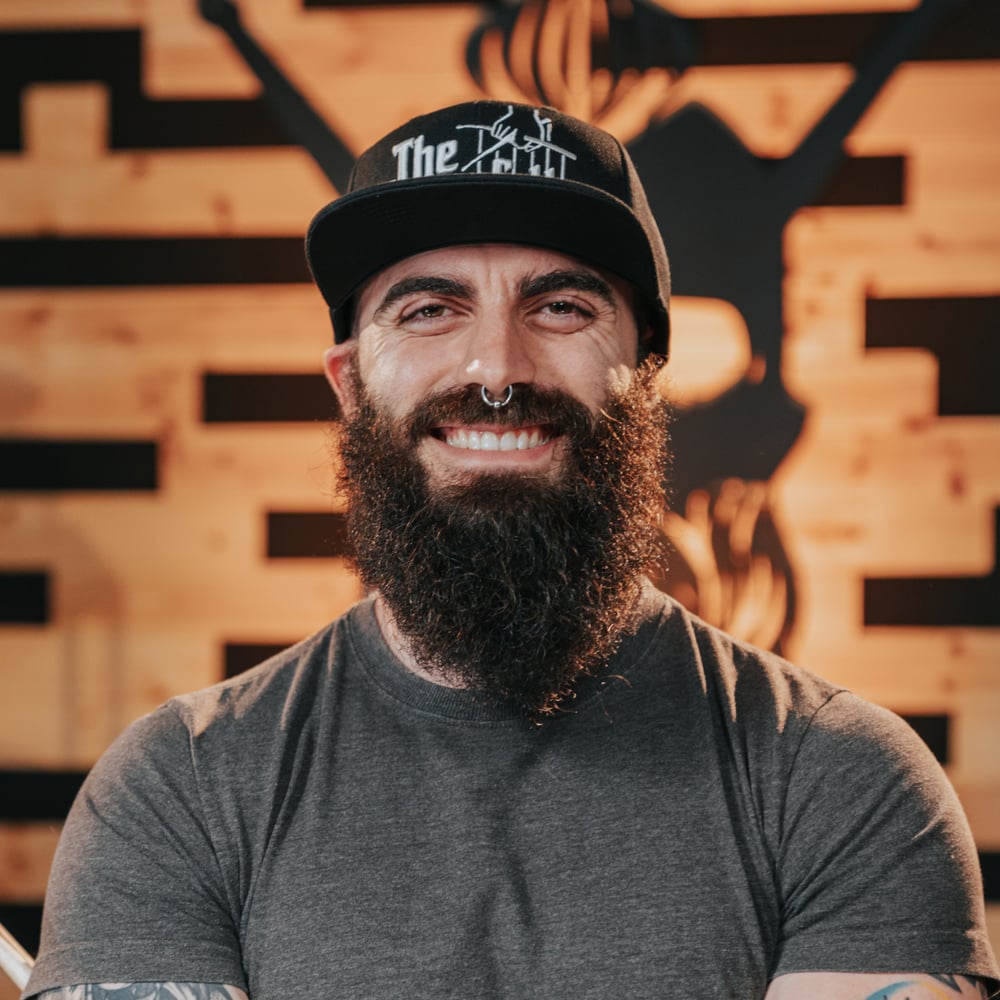

By signing up you’ll also receive our ongoing free lessons and special offers. Don’t worry, we value your privacy and you can unsubscribe at any time.
We use cookies for traffic data and advertising. Cookie Policy »